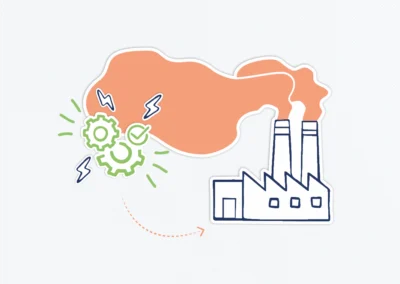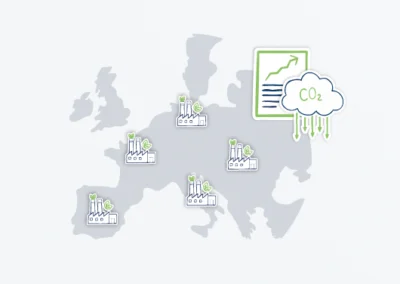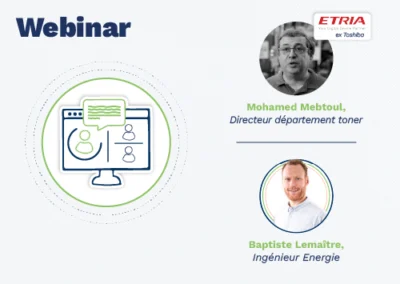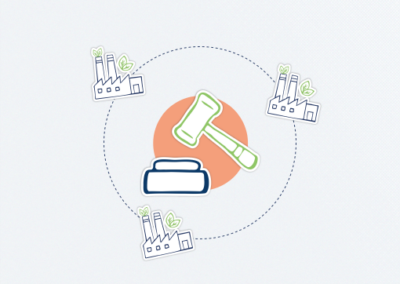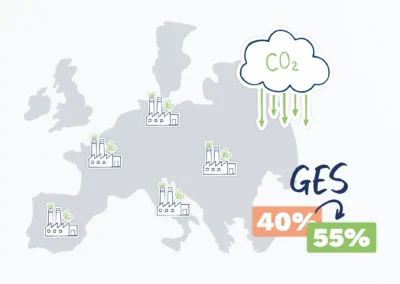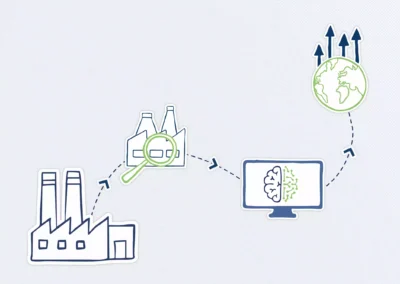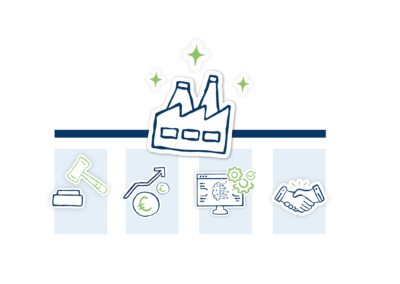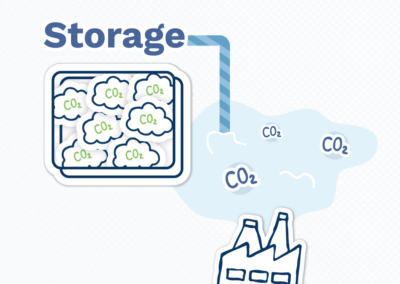
Increasing electricity prices: how to deal with it?
The increase in electricity prices poses a major challenge for industrial companies in 2023. Indeed, energy costs have experienced a significant increase in recent years, with a considerable impact on business budgets and revenues. Faced with this reality, it is essential to find solutions to mitigate the impact of this price increase and maintain the competitiveness of industries.
According to various surveys conducted by major players in the energy sector such as the Commission de Régulation de l’Énergie (CRE), Statista, the French Union of Electricity, and the Cour des Comptes (1), it is expected that electricity prices will continue to rise in the coming years. These studies provide clear indications of this trend. According to a study conducted in 2020 by Statista and the Commissariat général au développement durable (CGDD) of the Ministry of the Environment, Energy and the Sea, the final price of electricity is expected to reach 128.3 euros per megawatt-hour by 2030.(2)
These figures highlight the importance of taking measures to address this increase and mitigate its impact on businesses, especially those operating in the industrial sector.
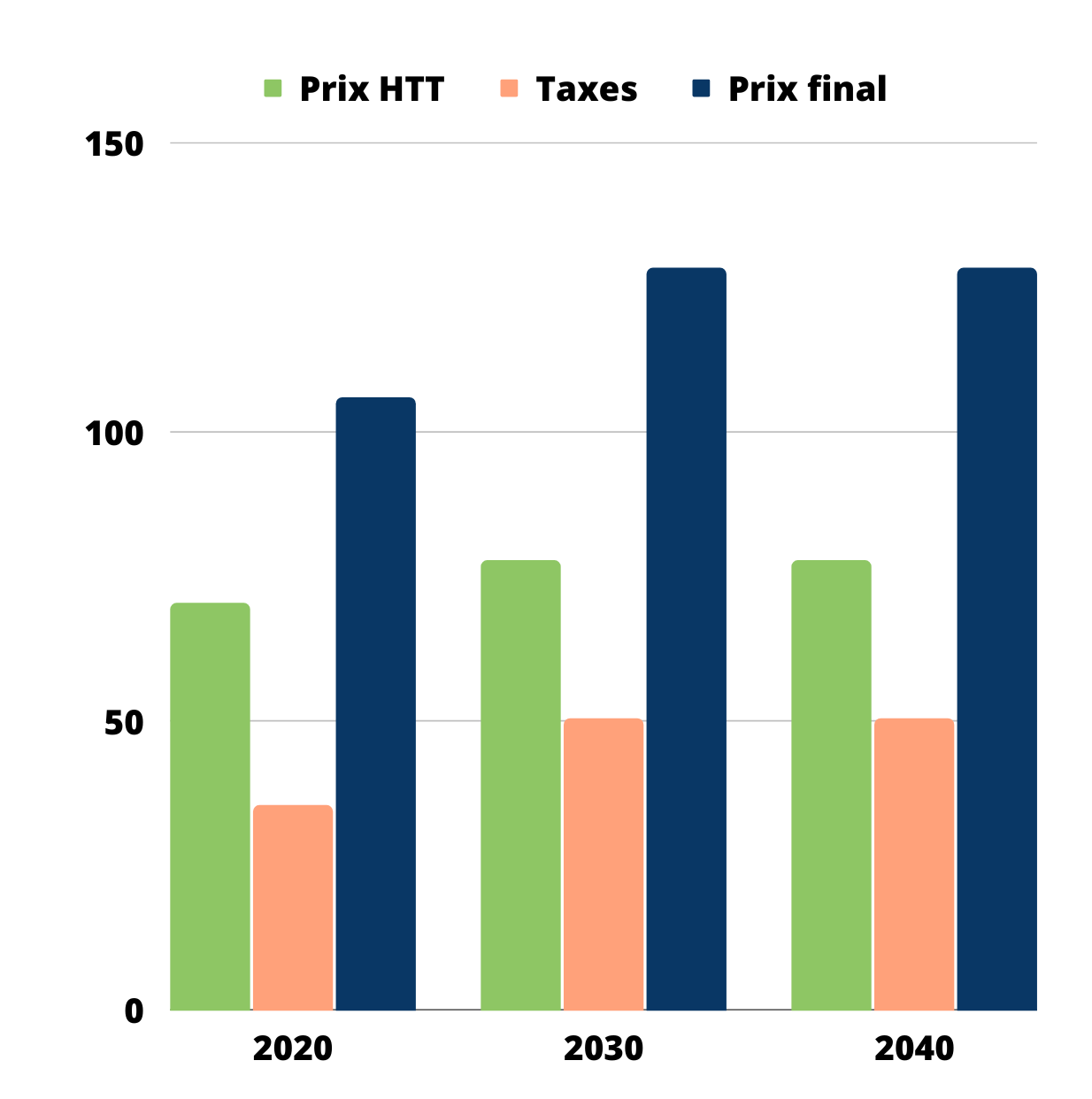
I. Understand the reasons for the increase in electricity prices
The increase in electricity prices is a reality that directly affects you, and it is essential to understand the factors contributing to this rise in tariffs in order to better understand the situation and find suitable solutions.
Here are some of the main reasons for this increase:
Global electricity demand continues to rise due to economic expansion, urbanization, and changing lifestyles. This increase in demand puts pressure on production and distribution infrastructure, resulting in additional costs for electricity providers.
Moreover, the prices of raw materials used in electricity production, such as natural gas, coal, and oil, can be volatile. Market fluctuations can lead to significant variations in production costs.
The nuclear sector is one of the factors contributing to the increase in electricity prices. One of the reasons is that the cost of the nuclear sector in France would be higher than initial estimates and will need to be reassessed. Additionally, investments required to extend the lifespan of nuclear power plants and develop renewable energies will inevitably have an impact on the electricity bill.
Another possible explanation for the rise in electricity prices is the reorganization of the electricity market, according to projections by the Commission de Régulation de l’Énergie (CRE). This reorganization may result in increased taxation rates for many consumers.
II. Optimize energy consumption
Optimizing energy consumption is an essential step in mitigating the impact of rising electricity prices. By adopting effective strategies, you can reduce your reliance on electricity, decrease your energy costs, and improve your competitiveness in the market.
Here are some strategies to reduce electricity consumption within your industry:
Energy management: Implement rigorous energy management. This involves monitoring and analyzing electricity consumption data, identifying areas of waste, and setting consumption reduction goals. Discover MyDametis, our software that allows you to take control of your energy consumption!
Energy audit: Conducting an energy audit will allow you to identify the main consumption areas and identify energy-saving opportunities. The energy audit can be carried out internally or by engaging external experts like Dametis. We will provide you with specific recommendations to improve the energy efficiency of your industry. Start with an energy audit and commission a dedicated industry expert consultant to accompany you in the short or long term.
Awareness and training: Involving your employees in the energy consumption optimization process is crucial. Organizing awareness and training sessions promotes good energy practices and encourages responsible behavior within your industry. Discover the Dametis Academy, our training center that trains industry professionals in the best environmental performance practices.
By implementing these energy efficiency measures, you can significantly reduce your electricity consumption and achieve substantial savings on your energy costs.
III. Diversify energy sources
Faced with rising electricity prices, it is essential for you, as industrialists, to diversify your energy sources.
Renewable energies, such as solar, wind, hydro, and biomass energy, offer a promising solution as they are inexhaustible and produce fewer greenhouse gas emissions. Investing in renewable energy production facilities allows you to generate your own electricity.
In addition to environmental benefits, renewable energies can also offer significant economic advantages. The production costs of electricity from renewable sources have decreased significantly in recent years, making these technologies increasingly competitive compared to conventional sources. By investing in renewable energies, you can achieve long-term savings on your electricity bills.
By diversifying your energy sources towards renewable energies, you can reduce your exposure to fluctuations in electricity prices. This is a strategic decision that offers economic, environmental benefits, and greater energy independence.
IV. Involve employees
Employee involvement is crucial to successfully reduce your electricity consumption.
By raising awareness and mobilizing your team, you can encourage active participation that will contribute to the energy efficiency of your organization.
Here are some ideas to involve your employees in this process:
Organize regular awareness sessions to inform your employees about the importance of reducing electricity consumption and the resulting benefits. Explain the environmental and economic impacts, as well as your company’s sustainability goals. Make them understand that they play an essential role in the success of these efforts.
Provide clear and practical information on good energy practices. Explain how they can contribute to reducing electricity consumption in their work environment, for example, by turning off unnecessary lights or optimizing the use of heating, ventilation, and air conditioning systems.
Encourage your employees to actively engage in reducing electricity consumption by offering them opportunities to contribute. For example, you can implement an energy-saving suggestion program, where employees are encouraged to propose innovative ideas to reduce electricity consumption in their industry sector.
Ensure that your employees receive training on effective energy practices: Turn to the Dametis Academy to train your employees in the best energy performance practices.
Your employees’ contribution is valuable in achieving your electricity consumption reduction goals and controlling energy costs.









